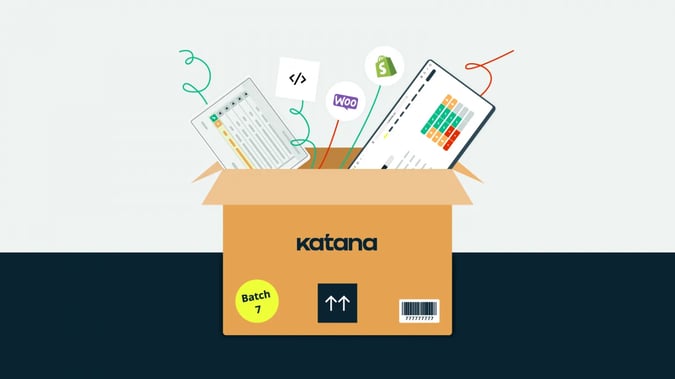Automation and AI are high on the agenda right now in the world of business. For a long time, there have been forecasts of robots coming to take our jobs, leaving human beings with little to do beyond keep the machinery running.
However, not all technical innovations are negative. Adding automation into the daily life of manufacturers can make their lives easier and make orders run faster and smoother. So, how can you, as their bookkeeper, offer advice to push them in the right direction?
Here are five ways to do it.
1 – Automating Inventory Management
Down with spreadsheets!
Ok, that’s not 100% serious, sheets still have their place in business and can be incredibly helpful. However, in a growing manufacturing business, manually editing spreadsheets for inventory, products, or anything else can eat up time that would be better spent elsewhere.
This applies even more during big sale periods like Black Friday, Cyber Monday, and Christmas, where it’s easy to be hit by a sudden stock-out if your internal data isn’t up to date. Late orders make sad customers, and sad customers don’t come back.
So how can you help your manufacturing clients in this situation?
With proper manufacturing software, of course!
Using the right software can bring automation to their business, with automated reorder points for raw materials and alerts when products are running low. This can all help negate the fear of a stock-out, simplify inventory management, and keep the right materials stocked up at the right times.
2 – No More Manual Invoice Creation
Most companies always have an invoice template on hand. If they have a bookkeeper, their books are almost certainly up-to-date. But why maintain the manual work when it could be easier for both?
With automated invoicing, as well as purchase orders and sales orders, synced with trustworthy accounting software, life becomes a lot simpler.
Finding a solution which integrates easily with software, like QuickBooks Online and Xero, means financial data and manufacturing data remain synchronized and there’s a lot less potential for human error to leave anyone in hot water.
It also offers a massive boost to efficiency as your client can trust their software to take care of invoice creation and updating financial records, while you, their bookkeeper, just have to perform a regular check that everything is in order — without any physical paperwork.
3 – Data-Driven Production Planning
It’s time to bring up big sale periods again.
Wouldn’t it be far nicer to be fully prepared for say, Black Friday, knowing which products are likely to be in demand and which products might be good to try and shift out of the warehouse?
This is where proper sales data helps inform plans. Understanding which products are in consistent demand helps manufacturers know how to set reorder points appropriately, but also how to prioritize production in the short and long term.
There might also be products that aren’t selling so well which could benefit from being bundled together with other more popular products in attractive deals. As a bookkeeper for example, you could use the same approach to bundle software solutions that play nicely together — and earn more commissions in one go. It's all about efficiency.
With automatically up-to-date data at hand whenever needed, manufacturers can make decisions from an informed place and get greater benefits for their business.
4 – Smarter Job Costing
Another massive advantage of using manufacturing software is having visibility across an entire business, knowing all the operating costs and how products and materials contribute to them.
With automated reordering comes automated calculations and a view of the moving average cost of materials. If one of the most popular products being offered involves ordering materials regularly and they start to increase in price, the manufacturer will need to make a decision. Do they scour the market for a more cost-friendly option? Or find ways to lower the price of the materials in question (like bulk buying or deals with the seller)?
There’s also the option to calculate the cost of manpower involved in each individual product, and investigate possible automations in production. This could help make products faster and free up time for your team to work on other or even new products.
Your client can also then regularly assess their pricing structure and make sure it’s putting their business on the path to growth without compromising the relationship with loyal and happy customers.
5 – Bringing In Barcodes
Finally, it might sound obvious as they’re on nearly every physical product you purchase, but manufacturers need barcodes. But we don’t mean just on the boxes of finished products.
With cloud manufacturing software, it’s possible to complete stock takes, track batches, track products or even track individual components using barcodes. But why is this necessary?
Firstly, using a barcode scanner to complete a stock take is a whole lot faster than pen and paper. The
beeping may get annoying, but hopefully, you can mute your device. Next, it can be crucial to assign numbers or codes to batches of products in case there’s a need to perform a recall. Although no company wants to do it, they can be necessary sometimes, and it’s far better to know which products need to be recalled.
Lastly, it’s an extra data point for the records around products to identify what’s in stock and how long it’s been there. You can also keep an eye on expiry dates if perishable goods are involved.
Which software should you recommend?
Katana is the manufacturing software that is entirely cloud-based and loved by thousands of manufacturers across the world.
Katana comes with all the features mentioned so far — as well as native integrations to the best accounting software on the market, including QuickBooks Online and Xero.
And as you’re likely reading this as someone who would be recommending Katana rather than using it, we want to offer readers of the Successful Bookkeeper blog an exclusive invite to our partner program. If you sign up today, every client you invite to Katana (between now and April 30th) will receive a 30% discount for their first 3 months.
And if you’d like to learn more about Katana then you can pay us a visit at katanamrp.com.




